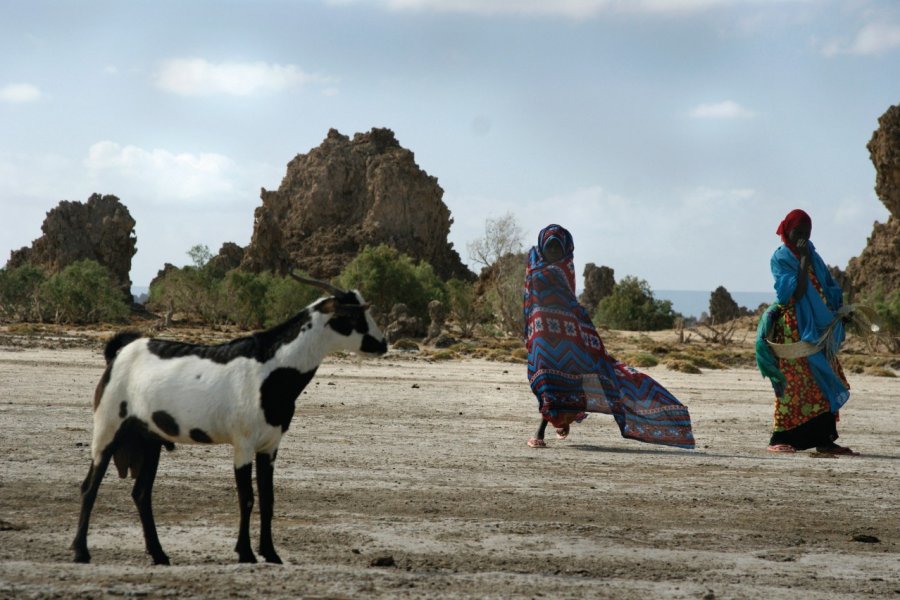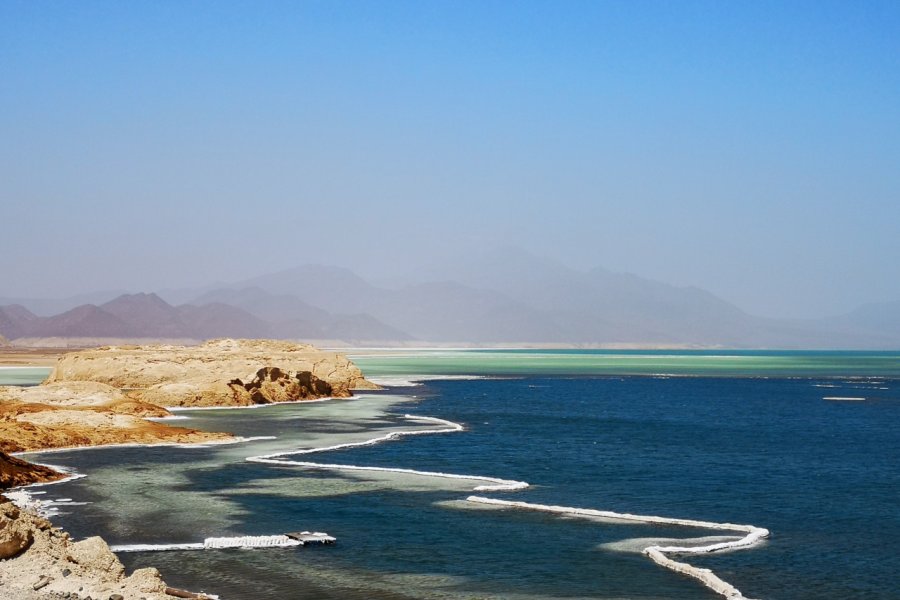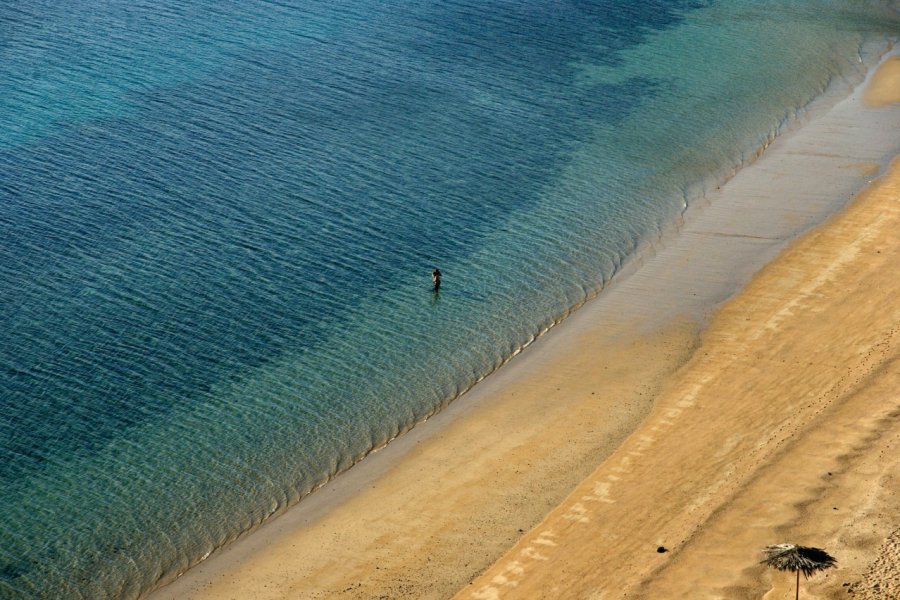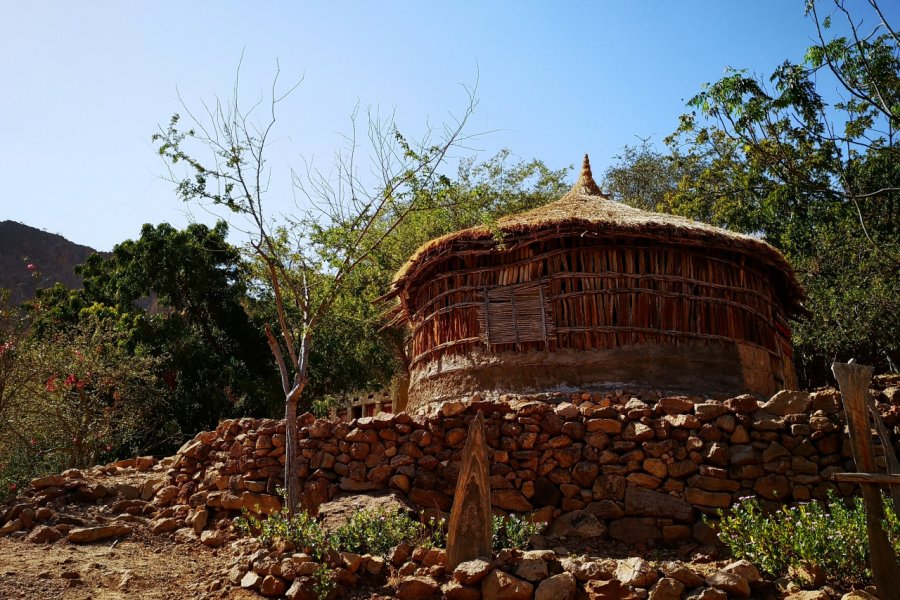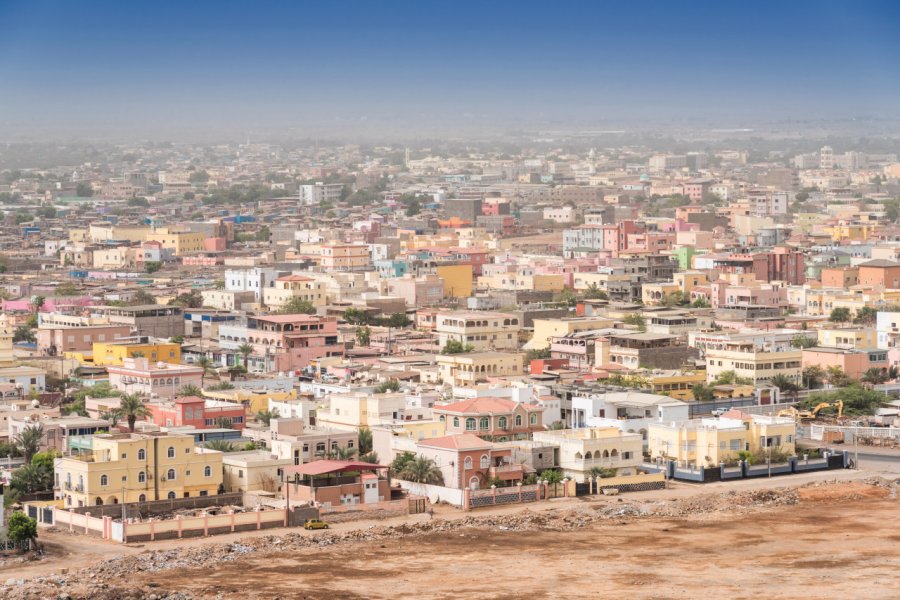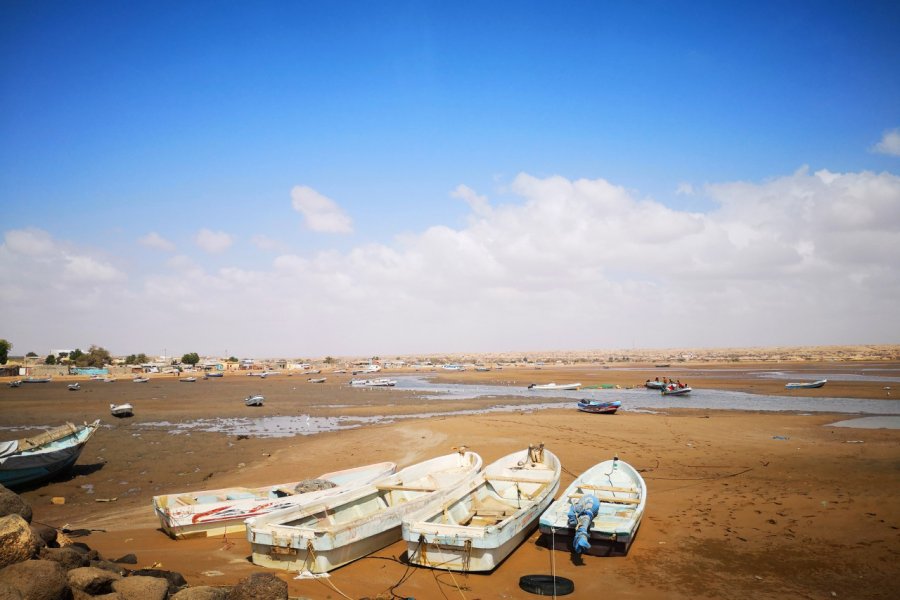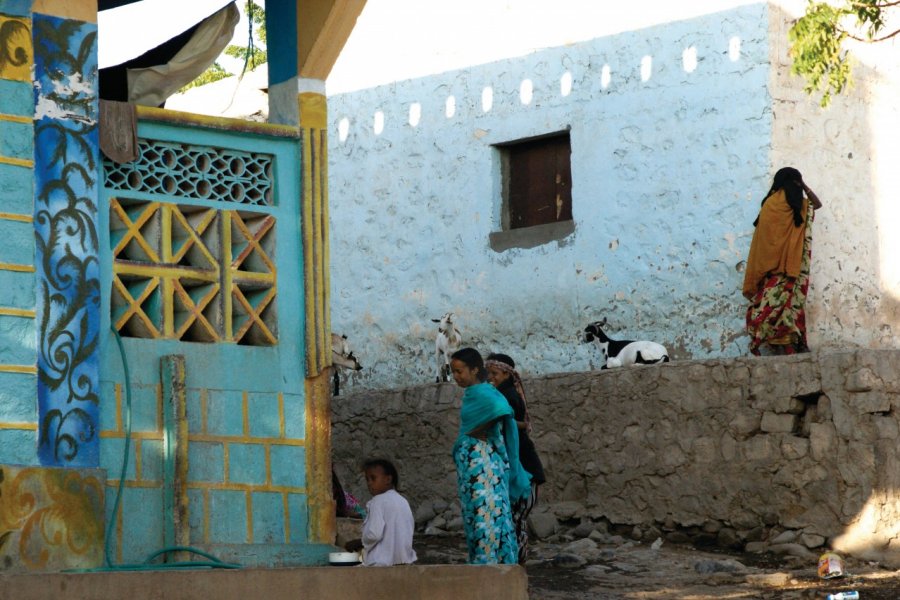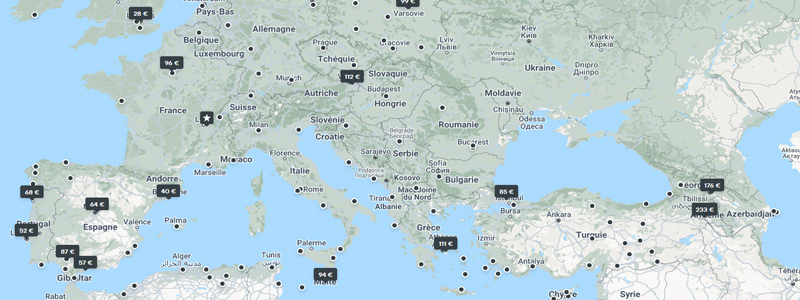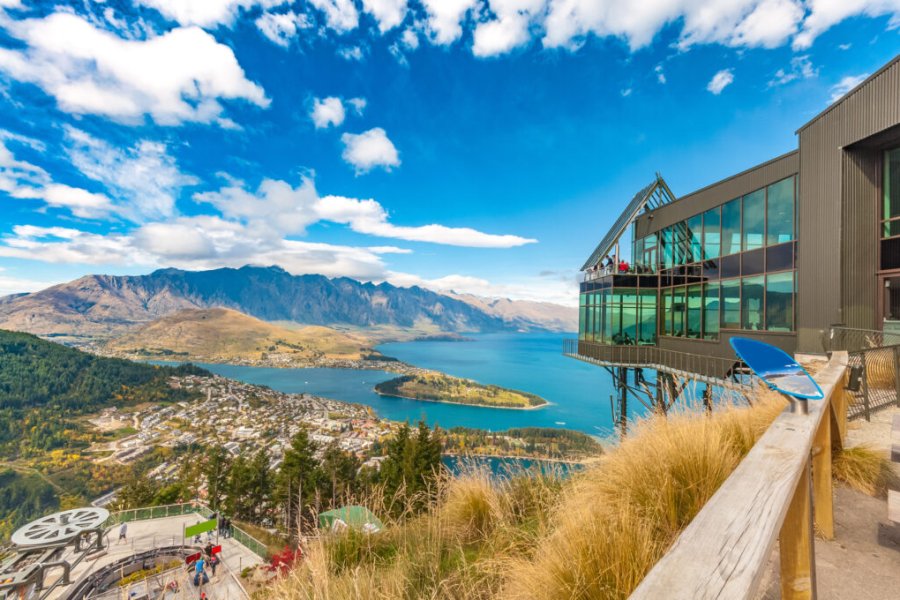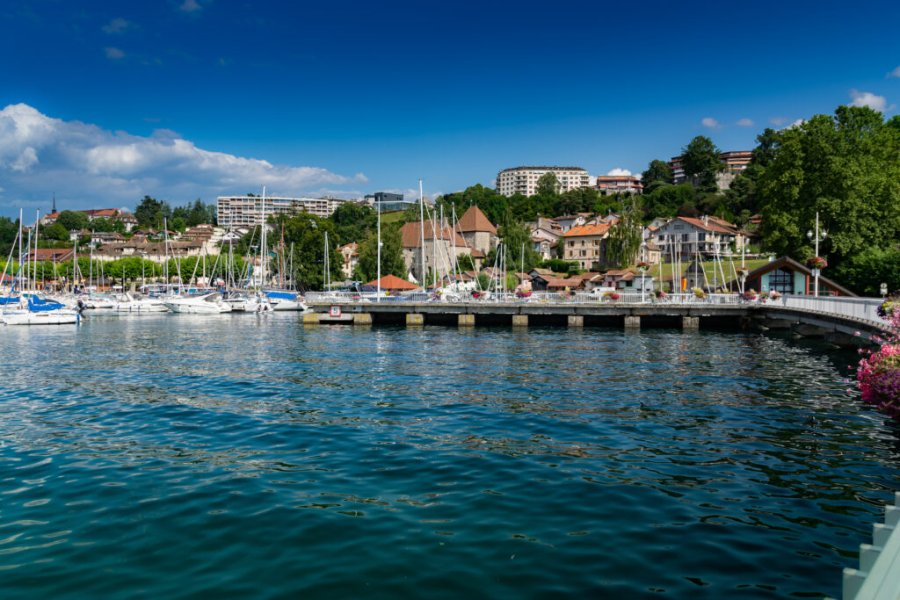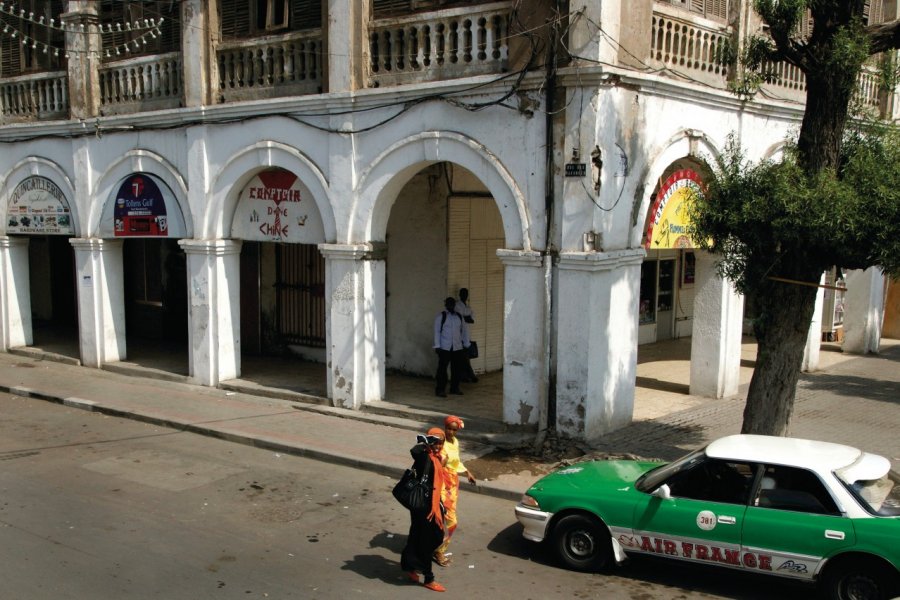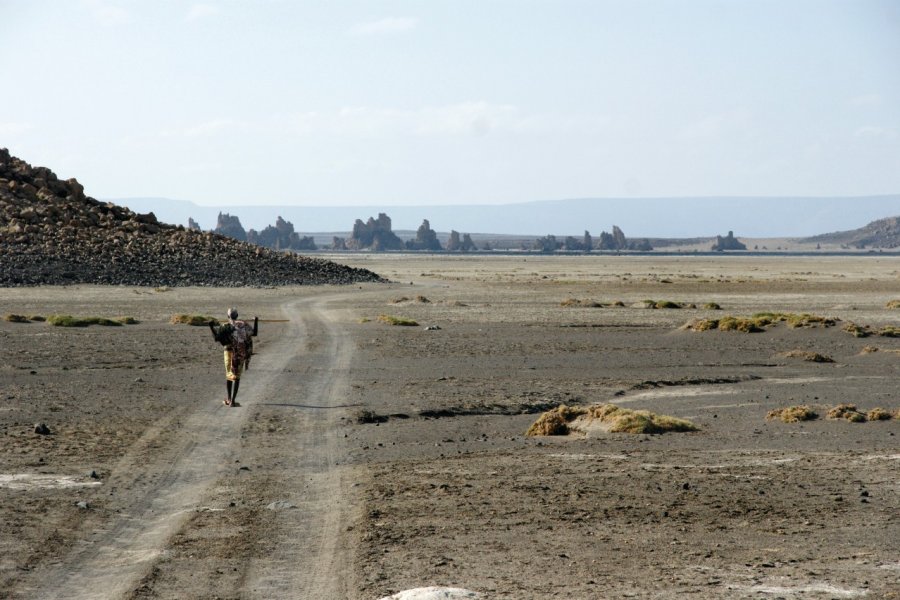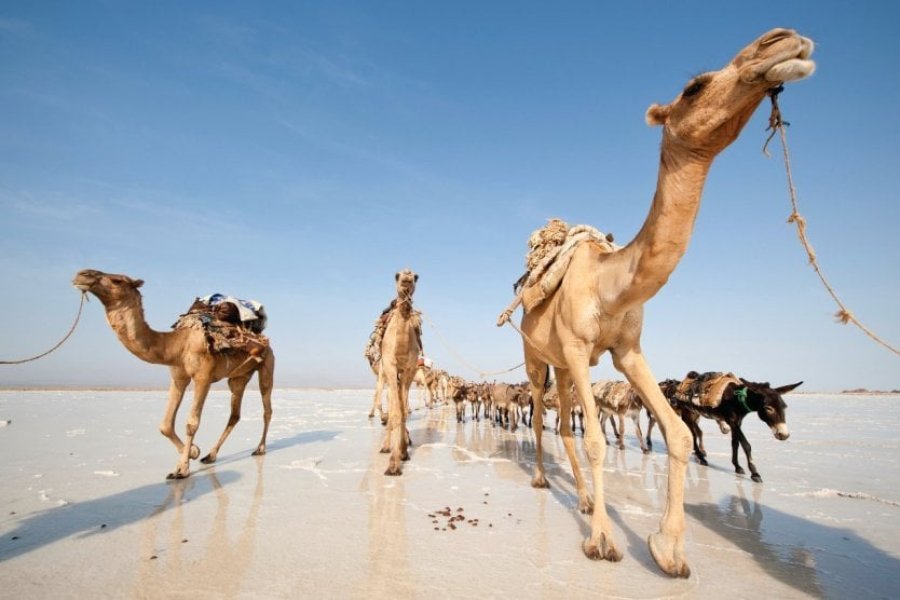Travel Guide Djibouti
Craving amazing panoramas? Nestled in the Horn of Africa, Djibouti offers an incredible contrast between desert and sea. Although not a popular destination, this small country abounds in grandiose landscapes. Discover the striking aridity of Lake Assal, one of the lowest points on the African continent. Fascinated by diving or snorkeling? The bluish expanses of the Gulf of Tadjourah in the Red Sea will delight you, a place prized by divers for its wealth of marine life.
Djibouti is a strategic crossroads, hosting international military bases and serving as a port hub for sailors from all over the world and Ethiopian truckers. As well as offering refuge to people displaced by neighboring conflicts, the city thrives on the influence of traders from many different horizons.
Djibouti also favors eco-tourism and the authentic discovery of its nomadic tribes. Covering 23,200 km², the country is bordered by Somalia, Eritrea and Ethiopia. Rich in Islamic culture, it is home to architectural gems such as the Hamoudi and Sada mosques, as well as the majestic Place Menelik. Djibouti also offers splendid beaches such as Khor Ambado and green spaces like the Day Forest National Park. For thrill-seekers, kitesurfing is a key activity. Choose the best accommodation and try out the recommended restaurants.
At the heart of this territory, the capital, Djibouti-Ville, reveals itself as a crossroads of cultures, where African, Arab and French traditions coexist in the sites to see.
It's this mix that gives Djiboutian cuisine its richness: spicy dishes, Yemeni and Somali influences, all accompanied by the traditional French baguette.
But beyond its gastronomy, Djibouti also offers sublime natural panoramas. The Ardoukoba plateaus, for example, bear the traces of the region's geological history, with their lunar landscape and volcanic activity. As for the beaches of Doraleh and Khor Ambado, they offer a perfect blend of fine sand and crystal-clear waters for a relaxing getaway.
Dive into this Djibouti Travel Guide and discover a world where history and geography intertwine to unfold unforgettable experiences. So, when can you set off to discover this East African destination?
What to visit Djibouti?
Suggested addresses Djibouti
When to go to Djibouti?
When to go to Djibouti? This is a question that all travelers ask themselves. This destination has a desert climate, with temperatures that can reach record highs at certain times of the year.
The best time to visit Djibouti is between October and April, when temperatures are cooler and more pleasant, especially for diving and snorkeling enthusiasts. But don't worry, we've found the other ideal times to discover this destination.
Djibouti lies between the Red Sea and East Africa. It's a land of extremes:
If you're planning a trip during the months of May to September, be prepared for the scorching heat of the desert, with temperatures in excess of 40°C. However, this is also the period when fares are lowest, a detail to consider for travelers on a tight budget!
Between October and April, temperatures are milder, especially if you plan to explore the vast desert expanses of the interior or dive into the crystal-clear waters of the Red Sea.
In November in Djibouti, for example, you'll have the privilege of observing whale shark migrations in the Gulf of Tadjourah!
When to go to Djibouti for local festivities? If you're looking for cultural experiences, consider a trip in February. This period coincides with the Djibouti Carnival. Experience this colorful celebration that blends French, Arab and African influences, it's incredible.
Each month in Djibouti offers its own advantages, whether in terms of weather, prices or local events. However, for a total experience, November to April seems to be the wisest choice for discovering this small country of great wonders. Ready to embark?
Weather at the moment
Djibouti's weather is characterized by a desert climate:
High season from November to February, with moderate temperatures ranging from 25°C to 30°C. This is perfect for exploring Djibouti-City or lounging on the coast.
Low season, from May to September, when you can expect temperatures of around 40°C, especially inland. The temperature in Djibouti during this period requires adequate preparation, including constant hydration.
There is no monsoon in Djibouti, so rainfall is scarce all year round and concentrated in the mountainous regions. Whatever the season, always check the Djibouti weather forecast before you leave to ensure you're well prepared.
Djibouti is a relatively expensive destination, due to its import-driven economy. Here's what you need to know:
The local currency is the Djibouti franc, but US dollars are also accepted;
It is advisable to carry cash, as not all shops accept credit cards;
ATMs are available, especially in Djibouti-City, but are rare in remote areas;
Tipping is not compulsory, but welcome.
If you want to save on accommodation, basic rooms are available. You'll also find mid-range hotels and more Westernized restaurants. Djibouti also boasts a number of high-end hotels that meet international standards.
Travellingto Djibouti requires a few formalities. Most nationalities need a visa to enter the country. You can obtain one :
On arrival at Djibouti international airport;
Or before your departure, from the Djibouti embassy or consulate in your country.
The process is generally straightforward, but we recommend that you consult the Djibouti embassy or consulate concerned for the most up-to-date information and to avoid any inconvenience.
You should also ensure that your passport is valid for at least six months beyond the date of your planned departure from Djibouti.
Proof of vaccination, particularly against yellow fever, is required for travelers coming from certain regions. We also advise you to take out travel insurance to cover medical care and repatriation in case of need.
And, if you plan to rent a vehicle in Djibouti, make sure you have a valid international driving license.
Business travelers may need additional documentation, so check with the relevant authorities. And don't forget to keep all your travel documents at hand, especially when passing through border controls on arrival in Djibouti.
For a stay in Djibouti, a few health precautions are essential. Djibouti has a number of specific health requirements:
The yellow fever vaccine is essential for travellers coming from regions where this disease is endemic;
You are also strongly advised to update your universal vaccinations (DTPP, hepatitis B);
And consider other vaccinations such as those against hepatitis A, typhoid or meningitis, depending on the length and conditions of your stay.
Drink only sealed bottled water. Avoid drinking tap water or water from unsafe sources, even for brushing your teeth, as this can lead to gastrointestinal problems.
And don't forget your first-aid kit. It should contain basic medicines and supplies for treating cuts and scratches. Djibouti, with its breathtaking scenery, is a unique experience, but one that requires careful health preparation.
Practical information
- When to travel?
- Weather forecast
- Budget
- Formalities
- Health
- How to travel by yourself?
- How to get organized?
- Getting around
Media
How to go to Djibouti? Our advice & tips
Go to Djibouti on a package tour and discover the country without the logistical hassle! Here are 5 tips:
1. Choose a specialized operator and respect the local culture: an agency offering tours dedicated to Djibouti has specialists with a good knowledge of the terrain.
2. Prepare in advance and find out about the itineraries on offer. Some focus on Djibouti-City and the surrounding area. Others will take you to remote areas for a more adventurous experience.
3. Study what's included in the package: accommodation, meals, excursions, guides, etc. This will help you establish an extra budget for unforeseen expenses.
4. Think about the length of your trip, as organized tours can range from a few days to several weeks.
5. Consider the size of the group - you may prefer small groups to large cohorts.
A tour package to the Republic of Djibouti is an excellent way to discover the country in a relaxed, structured way.
Discover our selection of travel agencies for this destinationFlying solo to Djibouti? Daring, but promising! Here are a few tips:
1. Find out about local customs and laws before you leave, to avoid any mishaps. Some places require special authorizations.
2. Safety first: stay alert, especially at night, and always have a means of communication.
3. Plan your itinerary, but remain flexible. The beauty of traveling alone lies in spontaneity.
4. Learn a few words - a "thank you" in Somali or Afar opens many doors!
5. Respect the culture, dress modestly and observe traditions, especially when visiting religious sites.
6. Take along a first-aid kit and find out about local health precautions.
Travelling alone in Djibouti requires certain demands, but it's well worth being prepared!
Walking remains a popular way to enjoy Djibouti-Ville, with its lively alleyways and eclectic architecture. Alternatively, hop on a bush cab! For longer journeys, there are plenty of them, but remember to agree the fare before you set off.
For those looking for adventure off the beaten track, rent a 4x4! This is an excellent option for overcoming chaotic roads. It allows you to explore incredible sites such as Lake Assal or Day Forest National Park. Local minibuses, though less comfortable, offer a perfect immersion in everyday Djiboutian life.
As for journeys between towns, buses remain the preferred solution. It's economical, practical and you'll often have the chance to chat with the locals.
